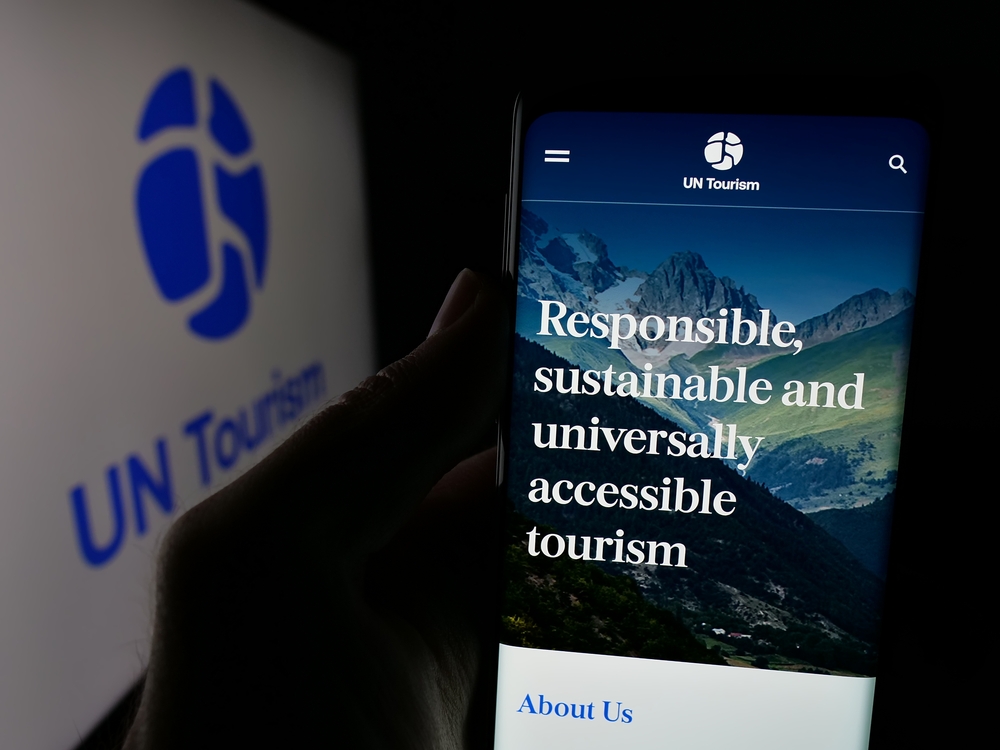A Vision for Global Tourism: Repositioning UN Tourism for a Sustainable, Inclusive Future
Travel and tourism are not luxuries. They are lifelines for economies, drivers of inclusion, catalysts for peace and understanding, and accelerants of sustainability. As the sector recovers from the seismic shock of the COVID-19 pandemic, we find ourselves at a critical turning point — not simply to return to what came before, but to redefine and reimagine the role of tourism in a rapidly changing world.
This Statement of Intent, presented in support of my candidacy for Secretary-General of UN Tourism, outlines a ten-point plan shaped by more than three decades of leadership in both public and private sectors. The priorities are structured under four key pillars: increasing value for Member States, strengthening tourism’s position globally, unlocking greater opportunities for people, and enhancing the sector’s positive impact. This plan is not merely aspirational; it is operational. Within my first 100 days, I will personally engage with all 160 Member States and key stakeholders to co-develop measurable goals and key performance indicators for each priority.
Elevating Value for Member States
UN Tourism must become an essential resource for its Members. This begins with providing strategic insights underpinned by accurate, high-quality data. Government decision-makers require access to relevant research and evidence-based case studies to support budget decisions, improve competitiveness and drive prosperity. UN Tourism must take the lead in delivering actionable, financially sustainable solutions that promote people, planet and economic progress.
Another critical task is re-establishing trust and ensuring equal representation. Several influential countries, such as the United Kingdom, United States, Canada and others, are not currently Members. Their engagement is essential to UN Tourism’s legitimacy as a global institution. Every country with a significant tourism sector, whether developed or developing, must have a voice and be supported accordingly.
We must also strengthen crisis preparedness. While COVID-19 was unprecedented, it was neither the first nor will it be the last crisis to impact tourism. A proactive, coordinated approach is necessary, one that includes public-private partnerships, risk assessment, emergency response planning, and trust-based communication. Tourism must no longer be reactive. It must be resilient.
Ensuring Global Recognition of Tourism
Tourism contributes over ten percent of global GDP and supports more than a billion livelihoods, yet it has frequently been excluded from the rooms where policy and budget decisions are made. This must change. Tourism is not a peripheral activity, it is central to inclusive economic development and must be recognised as such.
To this end, tourism must secure its place in national cabinets and international institutions alike. UN Tourism will work to amplify its influence within the United Nations system, the World Bank, the OECD, the G20, development banks, and other influential bodies. We will also collaborate closely with academic institutions, civil society, and global media to reshape the narrative around tourism’s contributions to society and the environment.
Sustainability must sit at the heart of this narrative. The sector must address its environmental footprint while maximising its role in conservation and climate resilience. Though tourism helps fund biodiversity protection, it also places pressure on ecosystems through emissions, waste, and water use. We need to act faster and with more cohesion to meet the targets of the Paris Agreement and the Sustainable Development Goals.
Creating More Opportunities for People
Tourism creates jobs that cannot be outsourced. It provides meaningful opportunities in towns, villages and cities alike, and plays a crucial role in reducing economic disparity. It also reduces the need for unsafe or irregular migration, particularly for young people in developing regions.
Youth and women are central to the tourism workforce, yet they remain disproportionately affected by unemployment and underrepresentation. Globally, young people accounted for 33 percent of unemployment in 2022, while the gender gap remains on track to take more than a century to close. Tourism has a responsibility to help correct these imbalances, not only through employment, but by creating safe, welcoming and equitable environments.
Beyond employment, we must also focus on education and continuous skills development. By 2040, staff shortages are expected across most global tourism markets. To fill those gaps, the sector must improve training, support life-long learning, and improve perceptions of tourism careers. UN Tourism will build a global academic and training network to support this goal.
Enhancing the Sector’s Impact
No single government, company or institution can solve the challenges facing tourism. Collaboration is fundamental. UN Tourism will build new partnerships across sectors, from NGOs and academia to multinational corporations and small businesses.
We will revitalise the Affiliate Members Programme, establishing clear tracks for collaboration in areas such as policy, advocacy, research and innovation. Small and medium enterprises, which comprise over 80 percent of the sector, will be at the forefront of these efforts.
Supporting innovation, entrepreneurship, and investment is also critical. We must create enabling environments that attract both domestic and foreign investment, foster technological innovation, and reduce barriers for SMEs. The use of technology including artificial intelligence, biometrics, big data and the Internet of Things must be guided by ethics, equity, and purpose.
Lastly, seamless travel and connectivity are essential for tourism’s continued growth. While significant investments have been made in security and digital travel solutions, much remains to be done, particularly in Africa, the Caribbean, and Pacific Island states, where poor air connectivity stifles growth.
Global standards for smart travel systems, more efficient visa policies, and enhanced interoperability between border systems can help make travel more secure and accessible. Air and ground connectivity are not just enablers of tourism, but gateways to trade, cultural exchange, and development.
A Commitment to Serve
As the candidate from Mexico, I bring a breadth of global experience, from leading Sabre Mexico and serving as Mexico’s Secretary of Tourism, to acting as CEO of the World Travel & Tourism Council and most recently advising the Ministry of Tourism in Saudi Arabia.
This Statement of Intent is not just a campaign outline. It is a call to action. If elected, I will work with diligence, humility and commitment to elevate UN Tourism, expand its relevance, and maximise its value for Member States, communities, and people around the world.
Tourism can be a force for good. Together, we can ensure it truly is.











